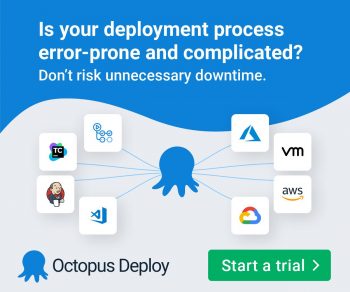Digital Transformation Starts with Data
Digital transformation is thrown around a lot.
It is one of those buzzwords I hear all the time. I am sure you do too.
But what does digital transformation really mean?
Gartner will tell you that it can refer to anything from IT modernization (think cloud computing), to digital optimization, to the invention of new digital business models. In the public sector, the term is often used to refer to modest initiatives such as putting services online or legacy modernization. Thus, the term usually refers to digitization rather than digital business transformation.
It is no wonder digital transformation is so hard; we can’t even agree on what it means!
This vague and frankly unhelpful definition from Gartner embodies everything wrong with how we think about transformation and innovation. Organizations are spinning their wheels trying to put out every fire without really understanding what’s happening below the surface.
Instead, organizations need to be diving deeper and address the real issue: data. It is your company’s most important resource. And yet, it is rarely understood and leveraged.
It is time we reimagine digital transformation and achieve better business outcomes with a foundation built on complete data understanding.
A Foundation of Data Understanding
An organization that doesn’t have a complete understanding of its data doesn’t have a clear picture of what is actually happening in its business. That can be hard to hear, but it is the reality we face today. After all, if you don’t know where your files, reports and data exist, how can you possibly understand it all? And without understanding your data, it is impossible to unlock its power.
This is exacerbated by the exponential growth of data, both in volume and complexity. By 2025, 463 exabytes of data will be generated every day. That is a staggering amount of data for organizations to contend with. All this information also poses considerable risks and is an enormous liability.
In an ever-changing world with ever-changing markets, operating from a place of ignorance is not sustainable. Shifting to a data-centric approach is the key to improving operations and driving growth.
A Data-Centric Approach to Business
Forward-thinking organizations are beginning to realize the importance of wrapping their arms around all their data. By understanding it and properly leveraging it, they can drive real business outcomes and next-level processes that separate the winners from the losers in terms of digital transformation. This is the power of a data-centric approach.
It’s important to note, however, that data understanding is not a destination, but an ongoing process with different internal and external data considerations. Many organizations invest in data and information-gathering solutions that focus on the customer. Now don’t get me wrong, this is a crucial component of a data-focused strategy. However, it is only part of the picture.
Beyond the customer is your own internal data ecosystem, which impacts everything from your employees to production and output. Considering your internal data ecosystem is necessary because it directly impacts your customers. Investing in and prioritizing data solutions that allow your employees and teams to work smarter, faster and with greater efficiency ultimately benefits your customers.
Planning and implementing a data strategy that focuses on both internal and external data and how they relate to each other helps to provide needed context for complex decision-making. And crucially, identifying and leveraging technology solutions that help to break down silos and reveal complete data understanding across an organization will better support these business decisions and overall growth.
Rethinking Data
As data continues to grow and as we emerge from this global pandemic, it’s long overdue for us to reimagine our digital transformation and rethink how we use data to fuel those efforts.
This quote from a recent PWC report describes this perfectly:
“By helping find new uses for data and making the necessary data and its use trustworthy, the efforts that [teams lead] can massively scale up a company’s innovation and growth.”
Digital transformation means a lot of different things to a lot of different people, but it always needs to be fueled by a rock-solid foundation of data understanding. This vital layer driven by a data-centric approach drives everything from customer engagement, transformed support systems, and ultimately, the bottom line.
I think we will be much better off if we hear that more often than empty buzzwords.












